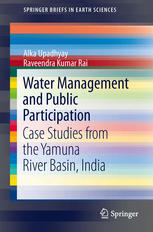

Most ebook files are in PDF format, so you can easily read them using various software such as Foxit Reader or directly on the Google Chrome browser.
Some ebook files are released by publishers in other formats such as .awz, .mobi, .epub, .fb2, etc. You may need to install specific software to read these formats on mobile/PC, such as Calibre.
Please read the tutorial at this link: https://ebookbell.com/faq
We offer FREE conversion to the popular formats you request; however, this may take some time. Therefore, right after payment, please email us, and we will try to provide the service as quickly as possible.
For some exceptional file formats or broken links (if any), please refrain from opening any disputes. Instead, email us first, and we will try to assist within a maximum of 6 hours.
EbookBell Team

4.1
50 reviewsIntegrated Water Resources Management (IWRM) is an approach that promotes the coordinated development and management of water, land and related resources, in order to maximize economic and social welfare in an equitable manner without compromising the sustainability of vital ecosystems. Without public interest and participation, successful implementation of IWRM plans for river basin cannot be possible. Further to this, management at the watershed level to assure water supplies to support livelihood (i.e. domestic water, irrigation, industries, etc.) and sustainable groundwater development requires water augmentation through water conservation structures, and pollution control will also play a vital role. In India, because of limited period of rainfall during Monsoon (i.e. three to four months), water conservation and rainwater harvesting have been practiced since ancient days in order to meet water demands throughout the year. These structures are generally constructed and operated through the public participation. Keeping in view of the importance of public partnership, the role of public partnership in context of water-related awareness and practices has been investigated in different parts of the Yamuna River basin. The investigation evaluates the impact of various water conservation devices on livelihood; compares the performance of recently developed water conservation structures with ancient structures; examines spatial variation of water-related problems in the basin; and proposes an institutional setup for effective governance.